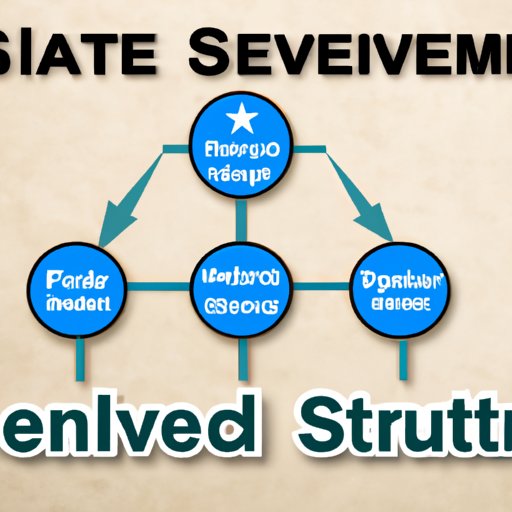I. Introduction
As Americans, we are all familiar with the concept of power division between the state and federal governments, but how much do we really know about what powers are exclusively in the hands of states? This article aims to break down these state-level powers, examine their significance, and how citizens can use them for positive change.
II. A breakdown of state vs federal powers: What’s exclusively in the hands of states?
At the state level, there are a number of powers which are exclusively in their hands. For instance, a number of critical services such as education, taxes, and election laws are all dealt with at the state level. This means that the state has the authority to create a unique approach depending on the needs of the citizens and their economy.
III. Why states play a pivotal role in shaping policy: A closer look at state-level powers in America
State-level power allows for a more democratic approach to policy-making as it allows policies to be designed to meet the unique needs of individual states and their citizens. While decentralization can lead to inconsistency among states, it also encourages experimentation and innovation. For example, California has implemented some of the most progressive climate policies in the US, which may not have been possible if they were controlled by the federal government.
IV. The states and the national government: A guide to how power is divided
The constitution of the United States established the framework for the division of power between the states and the national government. However, the topic of state vs federal power has been the subject of constant debate since its inception, and the balance of power has shifted over time. Currently, the federal government wields more power, leaving some states less able to create policy specific to their citizens’ needs.
V. What states can do that the federal government can’t: An overview of the unique freedoms and responsibilities of state governance
The Constitution lays out which powers are delegated to the federal government, and everything else is reserved for the states. This means that the states have more flexibility in areas such as commerce and criminal law. For example, California recently legalized the use of recreational marijuana despite federal scheduled drug classification. Meanwhile, states like Texas have exercised their right to self-governance to achieve outlawing cities from becoming sanctuary cities.
VI. Keeping the balance: An examination of state-level powers as a check on federal authority
State-level powers, in reality, can often serve as safeguards against federal overreach and abuse of authority. States have executive, legislative, and judicial powers to help check federal policies they don’t agree with by using their autonomy to advance policies they believe best suit their state and their citizens. States can also act as laboratories of democracy by developing innovative policies that can later be adopted by the federal government.
VII. Conclusion
Understanding the powers exclusive to states is crucial for an informed citizenry because, while the federal government remains important in shaping policy, state-level governments have a unique ability to engage in local decision-making. Furthermore, while exercising state-level powers can lead to an uneven distribution of regulations, it also allows institutions to experiment and develop innovative approaches to public policy. Ultimately, it is up to citizens to be aware of these exclusive state-level powers and use them as a tool for positive change by engaging in their local state democracy.
